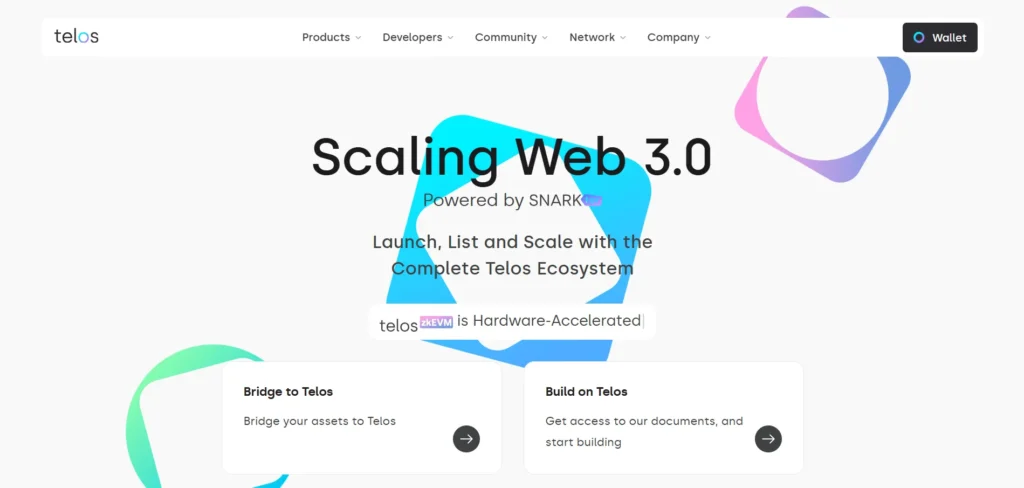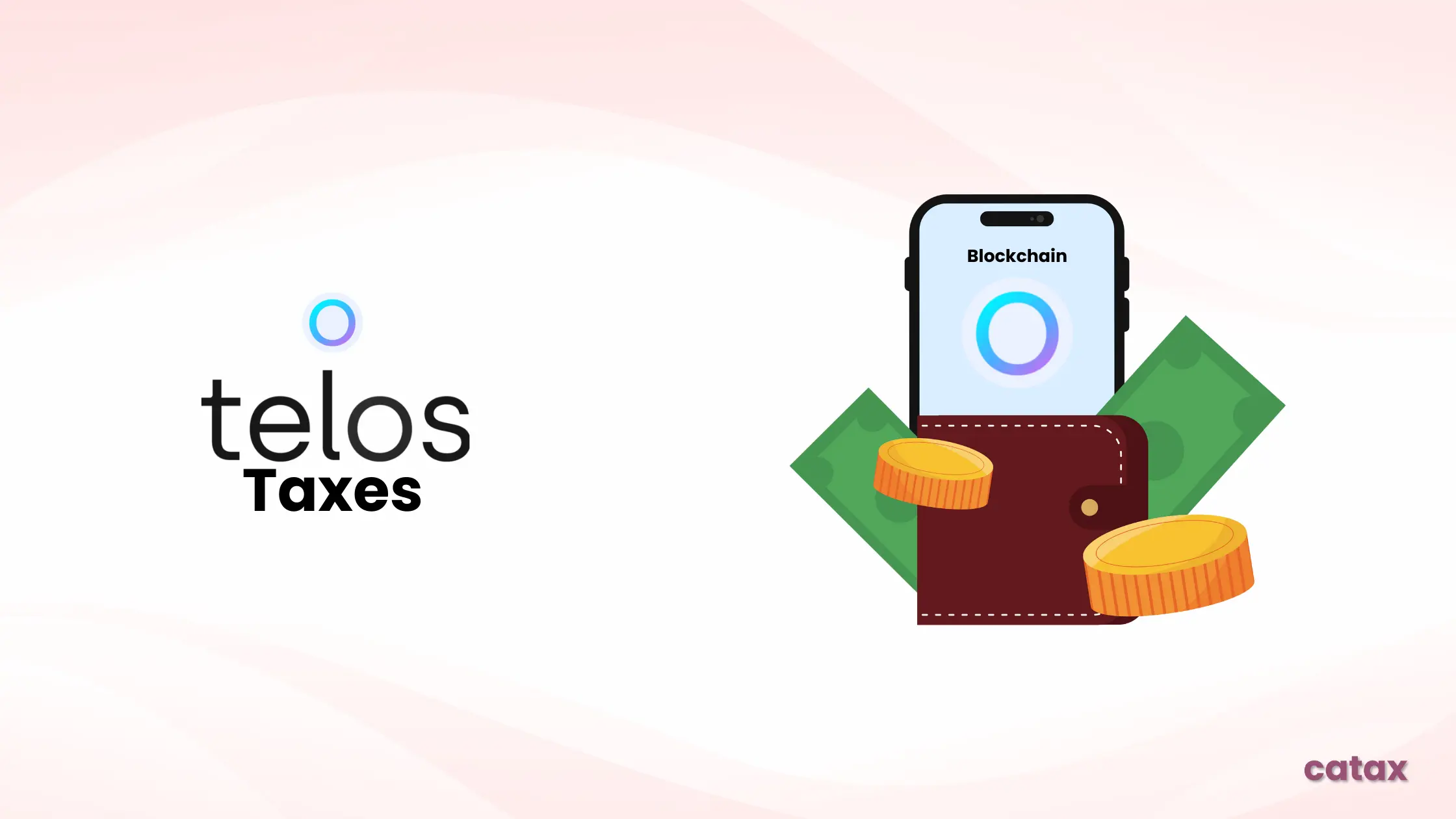Cryptocurrency tax rules vary across countries, and Telos (TLOS) taxes transactions may be subject to taxation under local laws. Whether you buy, sell, trade, or stake TLOS, understanding how tax authorities classify these actions helps ensure compliance and avoid penalties.
This guide simplifies Telos tax rules to help you stay informed, compliant, and in control of your crypto taxes.

How to Connect Your Telos Wallet to Catax
To easily track your Telos (TLOS) transactions and calculate taxes, follow these steps to connect your wallet to Catax:
- Open your Telos wallet or use a block explorer (such as MetaMask, Trust Wallet, Ledger, or another supported wallet).
- Copy your public wallet address from your wallet.
On Catax:
- Log in to your Catax account and choose your country.
- Select Chain, then search for Telos Wallet.
- Paste your public wallet address and click Connect.
Once connected, Catax will automatically track your TLOS transactions and handle tax calculations for you.
Calculate My Taxes ➤Are Telos (TLOS) Transactions Taxable?
Yes, in most countries, Telos transactions are taxable. Governments may treat TLOS as a capital asset, property, or income—depending on how you use it.
When Do You Have to Pay Taxes on Telos?
You may be liable for taxes in the following situations:
- Sell TLOS for a profit – If you sell Telos for more than what you paid, the gains may be taxed as capital gains.
- Trade TLOS for another cryptocurrency – Swapping TLOS for Bitcoin, Ethereum, or any other crypto may trigger a taxable event.
- Use TLOS to make purchases – If you spend TLOS and its value has increased since acquisition, you might owe capital gains tax.
- Earn TLOS from staking – In many countries, staking rewards are taxed as income when received.
- Get paid in TLOS – Payments in Telos for services or work are typically treated as income and taxed at the fair market value at the time of receipt.
Tax laws vary by country, so always check how TLOS transactions are taxed where you live.
Can You Deduct Trading Fees and Other Costs?
Many Telos users wonder if fees and expenses related to TLOS can be deducted. It depends on your local tax regulations.
Some countries allow deductions for:
- Trading fees when buying or selling TLOS.
- Transaction (network) fees for transferring TLOS between wallets.
- Security and storage costs, like hardware wallets, cold storage, or multi-sig setups.
Other countries may only permit:
- Deductions for the purchase cost of TLOS, without allowing extra fees such as exchange or withdrawal costs.
To avoid errors, confirm what expenses are deductible under your country’s tax laws.
How Is Telos (TLOS) Taxed Based on Holding Period?
The duration you hold TLOS before selling can impact your tax rate. Most tax systems apply the following rules:
- Short-term holdings (under 1 year) – Typically taxed at higher rates, often matching personal income tax rates.
- Long-term holdings (over 1 year) – May qualify for reduced tax rates to incentivize long-term holding.
- Flat tax systems – Some jurisdictions apply the same rate to all gains, regardless of holding period.
Understanding your country’s rules helps you plan better and possibly minimize your tax burden.
You can also check out our Country-Specific Guide for Crypto in Your country. This guide provides insights on regulations, tax implications, and compliance measures breifly explained for each country.
How Is Staking Income Taxed?
Telos staking rewards can offer passive income, but taxation rules differ across countries. Some governments tax staking rewards as soon as you receive them, while others only apply taxes when you sell or exchange the tokens.
How Countries Tax Staking Rewards
- Taxed as income – In some countries, staking rewards are treated like salary. This means you must pay taxes when you receive them, based on the token’s market value at the time. These are taxed at standard income tax rates.
- Taxed as capital gains – Other governments tax staking rewards only when you sell or dispose of them. In this case, only the profit (the difference between acquisition and sale value) is taxed.
If you stake Telos (TLOS), it’s important to know when the tax is triggered so you can prepare ahead of time. Some jurisdictions may tax staking rewards even if you don’t sell them.
To avoid surprises, always check your local tax rules before staking Telos.
Can You Claim Telos Losses for Tax Benefits?
Not every Telos transaction leads to a profit. Selling TLOS at a loss may help reduce your overall tax burden—depending on your country’s crypto tax rules.
How Different Countries Handle Crypto Losses:
- Loss offsets – Some tax systems allow you to offset Telos losses against other crypto or investment gains, so you only pay tax on your net profits.
- Loss carryforward – If you don’t have any gains this year, you may be allowed to carry your Telos losses forward to reduce taxable income in future years.
- Limited deductions – Some countries do not permit deductions for crypto losses, meaning losses from Telos trades might not be tax-deductible.
Keeping accurate records of your Telos transactions is key to reporting losses and claiming benefits where applicable.
How to Stay Compliant with Telos (TLOS) Tax Rules
With evolving crypto tax laws, staying compliant is essential to avoid penalties. Here’s how to stay on track:
- Know how your country taxes Telos transactions – Are TLOS gains taxed as income, capital gains, or business income?
- Check what deductions are allowed – This may include staking rewards, trading fees, network fees, or storage costs, depending on your country’s regulations.
- Keep detailed records of every Telos transaction – That includes buying, selling, trading, staking, or spending TLOS.
- Use a crypto tax tool like Catax – Catax helps you automate tax calculations, track all your transactions, and file accurate tax returns.
- Consult a tax professional – If you’re uncertain about how Telos is taxed in your country, a tax advisor can help you stay compliant with local laws.
